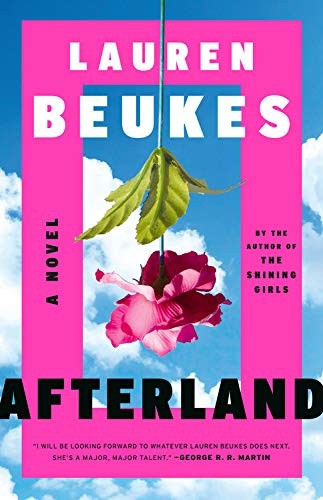David Bremner reviewed Afterland by Lauren Beukes
Serious fun.
5 stars
The timing is a bit ironic, a plague book being released just as COVID19 was becoming a household word.
The central plot device is a plague that kills almost all y-chromosome bearers. This leaves plenty of room for sly observations on human nature.
The surviving boy (Miles) spends much of the book disguised as a girl. This is a purely practical thing, I don't think people looking for a trans-kid coming of age story will find it here. On the other hand I do think it looks at coming of age issues related to sexuality and (fluidity-of) gender in a respectful and authentic way.
The main villain/anti-hero is Miles' aunt Billy who is charismatic and funny but narcissistic to the level of being dangerous to herself and others. She seemed like a not-so-heavily-veiled dig at the "heroic-entrepreneur", but I might just be projecting my own biases.
Miles' mother Cole is …
The timing is a bit ironic, a plague book being released just as COVID19 was becoming a household word.
The central plot device is a plague that kills almost all y-chromosome bearers. This leaves plenty of room for sly observations on human nature.
The surviving boy (Miles) spends much of the book disguised as a girl. This is a purely practical thing, I don't think people looking for a trans-kid coming of age story will find it here. On the other hand I do think it looks at coming of age issues related to sexuality and (fluidity-of) gender in a respectful and authentic way.
The main villain/anti-hero is Miles' aunt Billy who is charismatic and funny but narcissistic to the level of being dangerous to herself and others. She seemed like a not-so-heavily-veiled dig at the "heroic-entrepreneur", but I might just be projecting my own biases.
Miles' mother Cole is smart enough to make the snappy dialog believable, but also fallible, so that her struggles are not just with the US government and your usual assortment of post-apocalyptic feral road trip characters, but also with herself.
There are certainly a few twists in the plot, but for me the main dramatic tension was from the reader being a bit ahead of the characters, and knowing their story arcs are headed for trouble, separately and together.
The recently-read-by-me book it most resembles is Station 11. I'm not sure which one is better, they have a rather different feel to them. Station 11 envisions a post-technological future, while Afterland is more or less our a current world, where (almost) all of the villains and heroes happen to be (cis) women. If pressed, I would say that Afterland is more fun, while Station 11 is more beautiful.

